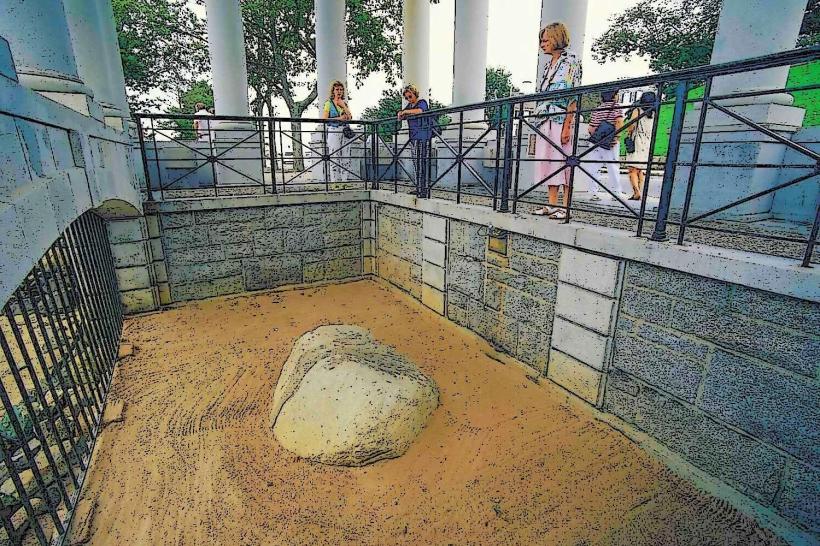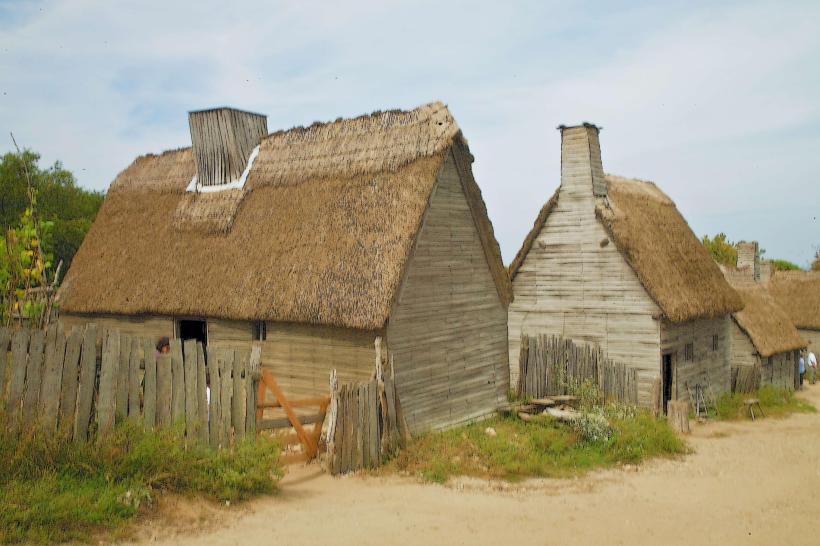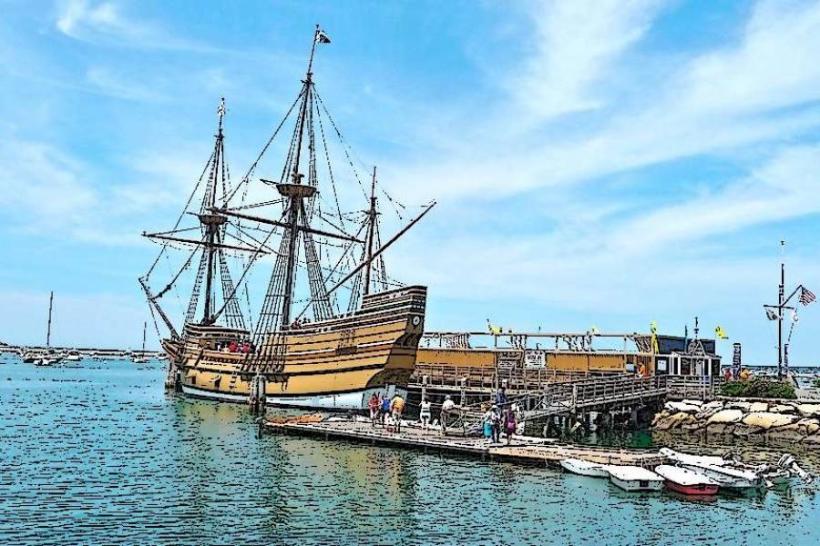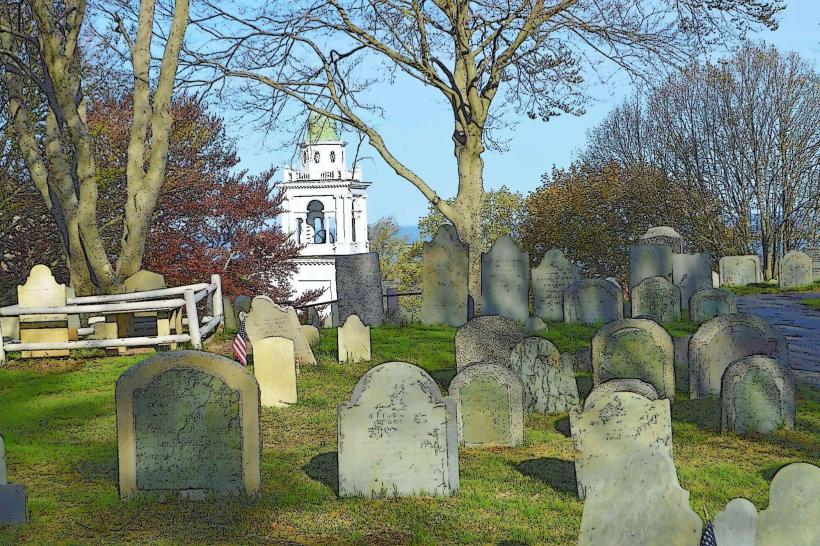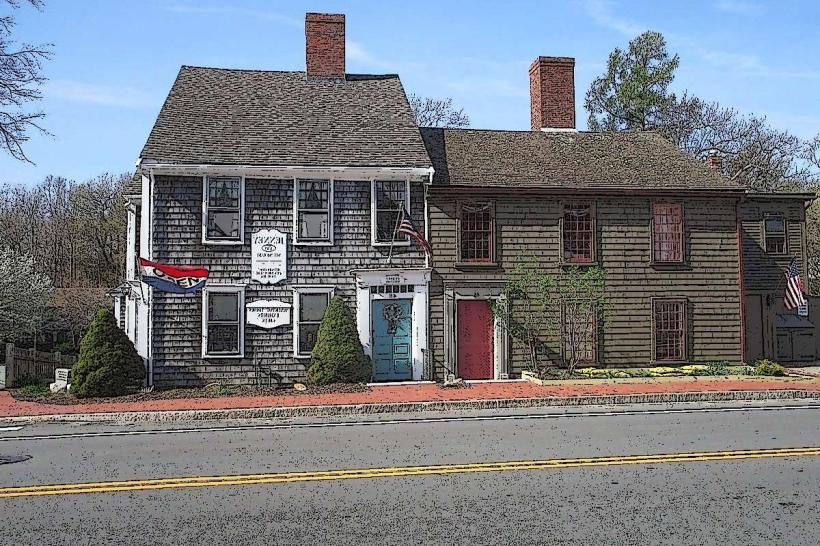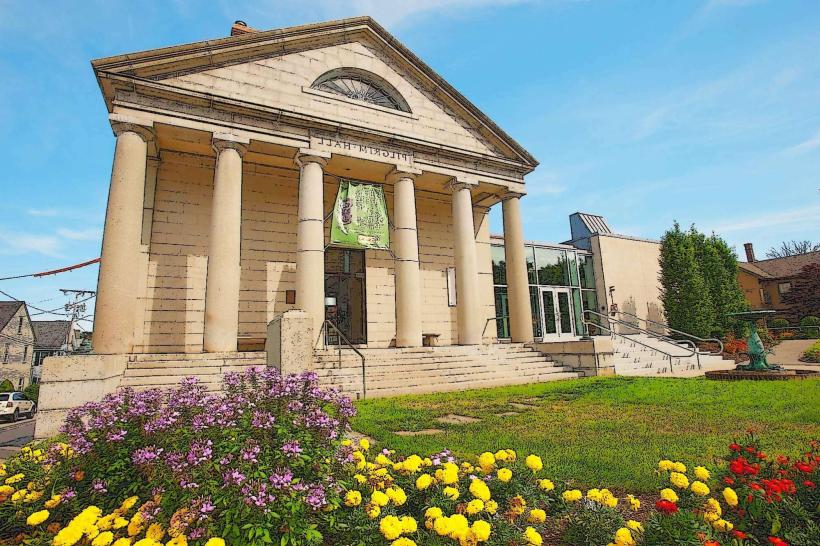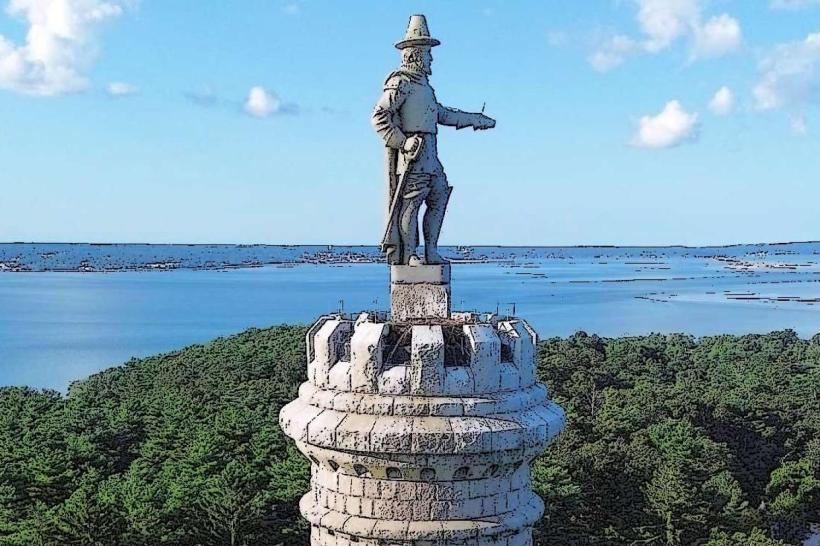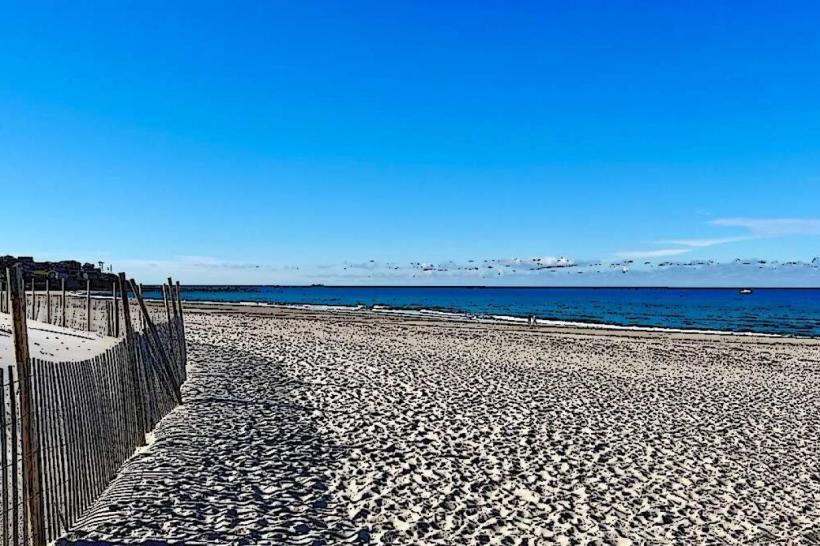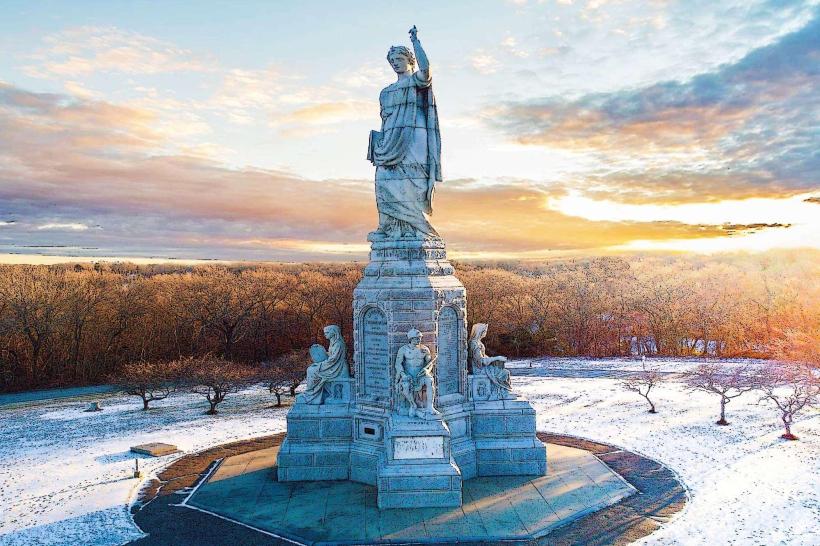Information
Landmark: Cole’s HillCity: Plymouth
Country: USA Massachusetts
Continent: North America
Cole’s Hill, Plymouth, USA Massachusetts, North America
Cole’s Hill in Plymouth, Massachusetts, is a site of profound historical significance as the earliest burial ground for the Mayflower Pilgrims who arrived in 1620. Located just above Plymouth Harbor, it overlooks the ocean and lies adjacent to Plymouth Rock and Burial Hill, forming a vital part of the narrative surrounding the founding of Plymouth Colony.
Historical Importance
During the harsh first winter of 1620-1621, nearly half of the Pilgrims perished due to disease, exposure, and starvation, an episode often referred to as the “starving time.” Cole’s Hill served as the first cemetery where these early settlers were buried in unmarked graves. The exact number of those interred is not precisely known, but estimates suggest that between 45 and 50 Pilgrims were laid to rest here, including notable figures such as Governor John Carver, William White, and Rose Standish.
The burials were conducted discreetly and quickly, primarily to prevent the local Native American tribes from knowing the colony’s weakened state. This secrecy was a strategic measure intended to protect the survivors from potential attacks. Because of this, no individual markers or headstones were placed at the time, contributing to the somber and mysterious nature of the site.
Discoveries and Memorialization
In the 18th and 19th centuries, during various construction projects and excavations on Cole’s Hill, human remains were unearthed, confirming its use as a burial site. These remains were respectfully reinterred in a granite sarcophagus placed atop the hill by the General Society of Mayflower Descendants in 1920. This sarcophagus acts as a collective memorial honoring those early settlers whose exact grave locations are unknown.
Monuments and Symbolic Features
Massasoit Statue: A prominent feature of Cole’s Hill is a nine-foot bronze statue of Massasoit, the sachem (leader) of the Wampanoag tribe. Sculpted by Cyrus E. Dallin and unveiled in 1921, the statue commemorates Massasoit’s alliance and peace treaty with the Pilgrims, which was vital for the survival and eventual prosperity of the Plymouth Colony. The statue depicts Massasoit in a dignified, calm posture, symbolizing friendship and mutual respect between the Native Americans and the settlers.
Granite Sarcophagus: This granite monument contains the remains recovered from earlier excavations and symbolizes the unknown Pilgrims buried there. It is inscribed with dedications to their memory.
Interpretive Signage and Pathways: The site includes informative plaques and well-maintained walking paths that guide visitors through the hill’s history, offering educational context about the Pilgrims’ trials and the significance of the site.
Landscape and Environment
Cole’s Hill is a gentle, grassy elevation rising from the surrounding streets, landscaped with native shrubs and trees that enhance the solemnity and natural beauty of the memorial grounds. Stone steps lead visitors from the street level to the summit, where benches provide places to rest while enjoying sweeping views of Plymouth Harbor and the coastline.
The hill’s vantage point offers a reflective space overlooking the waters where the Mayflower first anchored, allowing visitors to connect visually and emotionally with the Pilgrims’ arduous journey and settlement.
Cultural and Contemporary Significance
Today, Cole’s Hill functions as a place of remembrance and education, emphasizing the Pilgrims’ sacrifices and perseverance in the face of immense hardship. It also recognizes the complex history between the settlers and the Native American tribes, represented through the Massasoit statue and the acknowledgment of Native contributions.
Since 1970, Cole’s Hill has been the focal point of the National Day of Mourning, an annual event held on the fourth Thursday of November. This gathering honors Native American perspectives, remembering those who suffered as a result of colonization and advocating for indigenous rights and recognition.
Visitor Information
Location: Carver Street, Plymouth, Massachusetts, near Leyden Street and across from Plymouth Rock.
Access: Open daily from dawn to dusk with free admission.
Amenities: The site provides interpretive signs, benches, and coin-operated binoculars for scenic views.
Parking: Limited metered parking is available nearby on Carver Street.
Rules: Visitors are encouraged to treat the site with respect, keep dogs leashed, and refrain from littering.
Summary
Cole’s Hill stands as a solemn and powerful memorial to the Pilgrims who faced unimaginable hardship during the founding winter of Plymouth Colony. It preserves the memory of those who perished, marks the historic alliance with the Wampanoag people, and serves as a space for reflection on early American history and its complex legacies. The site’s peaceful setting overlooking Plymouth Harbor enhances its role as a place for contemplation, education, and honoring the past.

